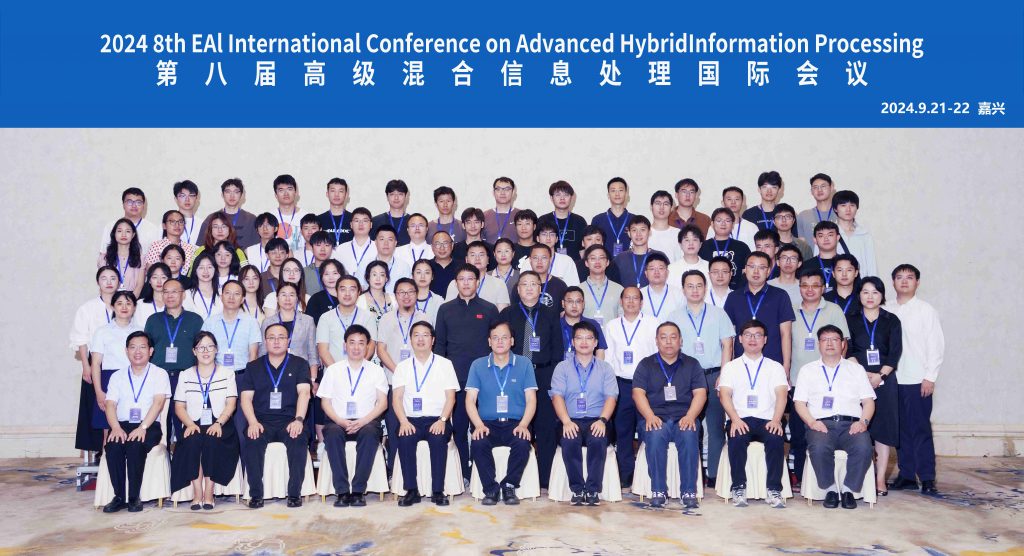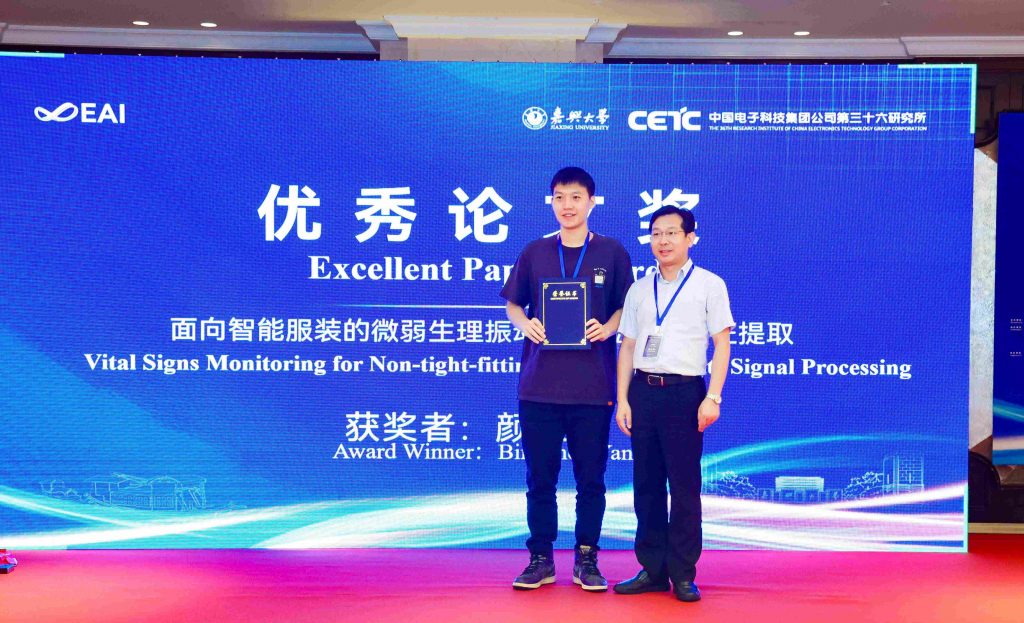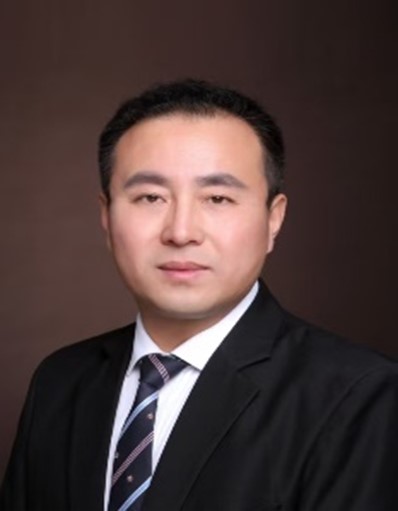9th EAI International Conference on Advanced Hybrid Information Processing in Zhengzhou, China on September 20-22, 2025.



9th EAI International Conference on Advanced Hybrid Information Processing in Zhengzhou, China on September 20-22, 2025.

Thank you to all the participants and volunteers for a great conference! See submission opportunities for the next edition here
Welcome to the EAI Community
Let the EAI Community help you build your career with collaborative research, objective evaluation, and fair recognition:
- Extra visibility for your paper and fair review → Community Review
- Real-time evaluation and feedback on your presentation on-site → EAI Compass
Proceedings
Best Paper Award
The Organizing Committee of EAI ADHIP 2024 is delighted to announce that the Best Paper Award is presented to the following papers:
Vital Signs Monitoring for Non-tight-fitting Garments and its Signal Processing
CAMF: A Cross-modal Attention and Multi-stage Fusion Network for Multi-modal Vessel Identification
Joint Visual and Text Prompting for Zero-Shot Object-Oriented Perception with Multimodal Large Language Models
Congratulations!
About ADHIP 2024
Since information processing has acted as an important research domain in science and technology today, it is the right time to develop deeper and wider use of hybrid information processing, especially weak signal processing. Today, there are more remaining issues are waiting for solving, such as weak signal detection and estimation, multi-source information fusion and hybrid intelligent computing. These entire problems need our more attention to solve.
Therefore, more effective thoughts and methods are needed to enhance theory and application of hybrid data processing. Moreover, the use of sophisticated and robust mathematical methods are important in hybrid information fusion and integration, and emerging methods which can improve the efficiency of this domain are also encouraged in this conference.
So, this conference aims to provide an opportunity for researchers to publish their gifted theoretical and technological studies of advanced method in big hybrid data processing, and their novel engineering applications within this domain.
The main focus of this special issue will be on the state-of-the-art advances in the studies and emerging applications in following topics. Excellent review articles are also welcome.
The event is endorsed by the European Alliance for Innovation, a leading community-based organisation devoted to the advancement of innovation in the field of ICT.
Topics
1: Weak Signal Processing
1.1 Hybrid Approaches for Weak Signal Denoising and Enhancement
1.2 Weak Signal Recovery and Reconstruction 1.3 Weak Signal Detection and Estimation
1.4 Weak Signal Processing in Biomedicine
1.5 Weak Signal Processing in Wireless Communication
2: Hybrid Information Fusion and Integration
2.1 Multi-source Information Fusion
2.2 Social Media Information Integration
2.3 Internet of Things (IoT) Information Fusion 2.4 Sentiment Fusion
2.5 Image Fusion
2.6 Physiological Signal Fusion
3: Hybrid Intelligent Computing
3.1 Hybrid Intelligent Computing Architecture 3.2 Deep Learning and Graph Neural Networks 3.3 Reinforcement Learning and Evolutionary Computation
3.4 Human-Computer Hybrid Augmented Intelligence
3.5 Quantum Artificial Intelligence
3.6 Hybrid Intelligence Computing Hardware
Publication
All registered papers will be submitted for publishing by Springer and made available through SpringerLink Digital Library: ADHIP Conference Proceedings.
Proceedings will be submitted for inclusion in leading indexing services, such as Web of Science, Compendex, Scopus, DBLP, EU Digital Library, Google Scholar, IO-Port, MathSciNet, Inspec, and Zentralblatt MATH.
Authors of selected best accepted and presented papers will be invited to submit an extended version to:
All accepted authors are eligible to submit an extended version in a fast track of:
- EAI Endorsed Transactions on Scalable Information Systems (ESCI-WoS, Compendex)
Additional publication opportunities:
- EAI Transactions series (Open Access)
- EAI/Springer Innovations in Communications and Computing Book Series
(titles in this series are indexed in Ei Compendex, Web of Science & Scopus)
About EAI
This event is organized by EAI.
EAI – European Alliance for Innovation is a non-profit organization and a professional community established in cooperation with the European Commission to empower the global research and innovation, and to promote cooperation between European and International ICT communities.
EAI’s vision is to foster excellence in research and innovation on the principles of transparency, objectivity, equality, and openness. Our guiding principle is community cooperation to create better research, provide fair recognition of excellence and transform best ideas into commercial value proposition.
EAI‘s mission is to create an environment that rewards excellence transparently, and builds recognition objectively regardless of age, economic status or country of origin, where no membership fees or closed door committees stand in the way of your research career.
Through these shared values, EAI leads the way toward advancing the world of research and innovation, empowering individuals and institutions for the good of society to fully benefit from the digital revolution.
Important dates
Late Track
Submission deadline
20 Jun 2024
Notification deadline
21 July 2024
Camera-ready deadline
20 August 2024
Main Track
Previous ADHIP editions
2023 – Harbin, People’s Republic of China
2022 – Changsha, People’s Republic of China
2021 – Virtual conference
2020 – Virtual conference
2019 – Nanjing City, People’s Republic of China
2018 – Yiyang, People’s Republic of China
2017 – Harbin, People’s Republic of China
Sponsors















